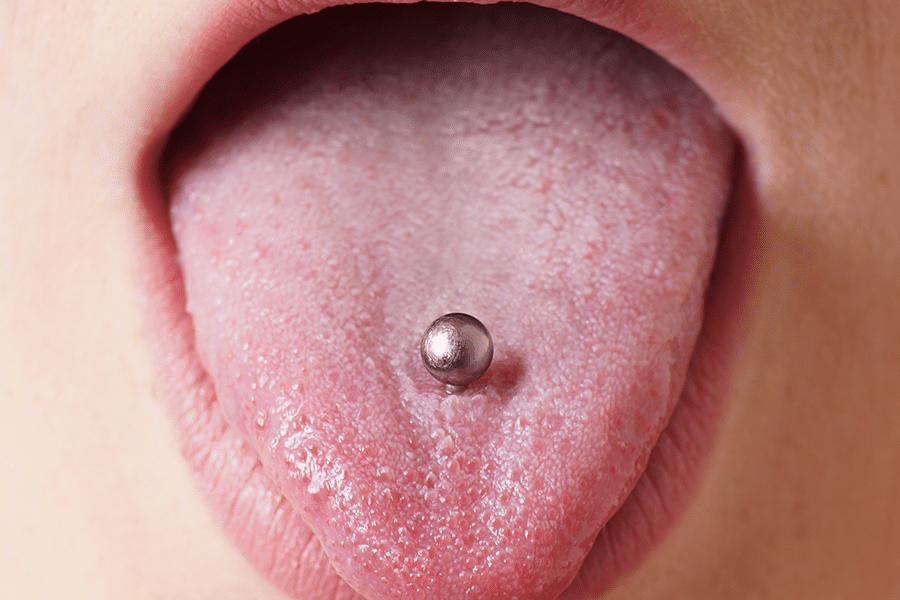If you’re thinking about getting an oral piercing, you may be wondering about the relationship between oral piercings and oral health. If you already have an oral piercing, you may want to know more about how you can maintain proper care. Oral piercings can be dangerous to your health. The American Dental Association advises against all oral and perioral piercing due to negative health risks.
However, if you’re considering a piercing in the lip, tongue, or cheek, we recommend that you consult your dental professional before having the procedure done.
Risks Involved with Oral Piercings:
- Infection, pain and swelling– Your mouth is a moist environment, home to huge amounts of breeding bacteria, and an ideal place for infection. An infection can quickly become life threatening if not treated promptly. It’s also possible for a piercing to cause your tongue to swell, potentially blocking your airway.
- Damage to gums, teeth and fillings– A common habit of biting or playing with the piercing can injure your gums and lead to cracked, scratched or sensitive teeth. Piercings can also damage fillings.
- Nerve damage– After a piercing, you may experience a numb tongue that is caused by nerve damage that is usually temporary, but can sometimes be permanent. The injured nerve may affect your sense of taste, or how you move your mouth. Damage to your tongue’s blood vessels can cause serious blood loss.
- Excessive drooling– Your tongue piercing can increase saliva production.
- Dental appointment difficulties– The jewelry can get in the way of dental care by blocking X-rays.
How to Care for an Oral Piercing:
If you’re still planning on getting one, be sure to see a trained professional who uses sterile instruments. By going to a professional who prioritizes cleanliness, you’ll be less likely to get an infection or a disease.
Stay away from smoking and chewing tobacco and avoid compulsive habits that could infect your piercing, like:
- Playing with or rotating your jewelry.
- Chewing on your fingernails.
- Putting a pen or a pencil in your mouth.
- Putting any other objects in your mouth that may harbor bacteria.
Once your piercing has healed, be sure to remove your jewelry whenever you are eating or sleeping. If you play any sports or are involved in any other physical activities, it’s essential to remove your jewelry as well.
The Bottom Line:
If you already have a piercing or are still interested in getting one despite potential risks, aftercare will be very important for you to maintain a healthy mouth.
Practice good oral hygiene with particular attention paid to your jewelry and your piercing. Brush at least twice a day. Floss or clean between your teeth with interdental brushes or water flossers at least once a day, and use antimicrobial mouth rinses. Be sure to see your dental professional for regular cleanings, not only to keep your teeth pearly white and bacteria-free but also to check your piercing and the health of your surrounding teeth and gums.
Contact our office if you have any questions or concerns about oral piercings.
